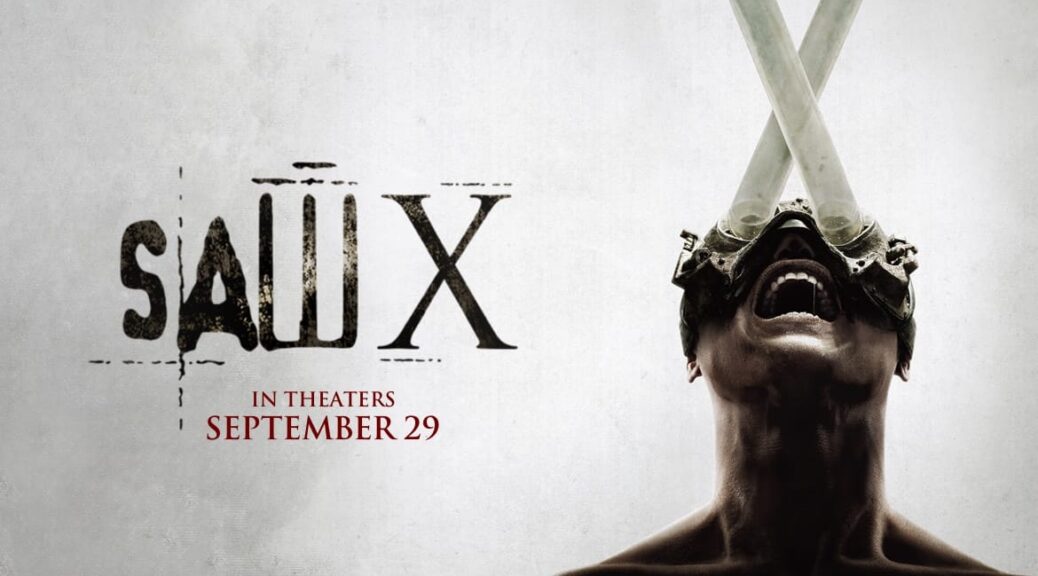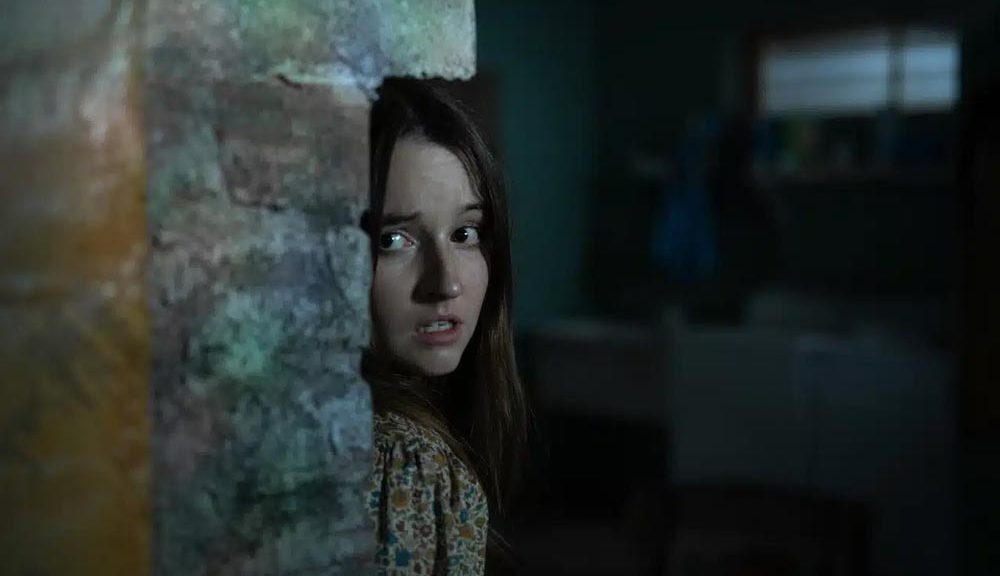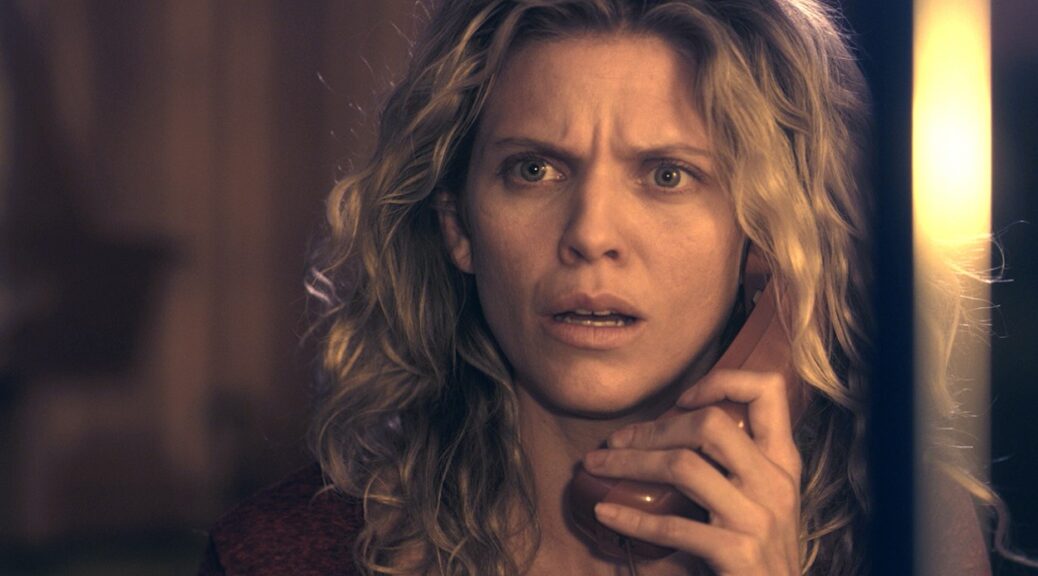Saw X
by Hope Madden
Whenever someone states specifically that they do not like horror movies, there is a better than average chance they’ll namedrop Saw as what’s wrong with the genre.
Of course, the Saw franchise is not really that typical of horror, especially today. But you wouldn’t know that if you didn’t like horror, would you? And to be fair, most of the films in the series are awful. James Wan’s 2004 original was clever and grim. But then a sequel came out every Halloween, each less clever and more grim until they became lazy, threadbare embarrassments. And then in 2021, an infusion of money and star power threatened to turn the tide with the refocused Spiral, which was so bad it felt more like a parody than a retooling.
So why bother with the tenth installment, Saw X?
- Badass poster
- That AMC ad
Yes, some marketing genius got behind this episode in a big way, but how’s the movie?
If you hate the Saw films, Saw X will not convert you.
If you don’t, it’s probably the best since Wan’s original.
Director Kevin Greutert, who directed the mediocre-at-best Saw VI, is back working with franchise writing regulars Josh Stolberg and Pete Goldfinger (responsible for two of the worst: Spiral and Jigsaw).
Also returning, Tobin Bell as John Kramer. You may know him better as Jigsaw, but he spends the majority of the film as the tender if zealous life coach, if you will. Series favorite Shawnee Smith returns as acolyte Amanda Young, and suddenly you may be wondering if there is anything fresh or new about the tenth episode.
Yes and no. Though the tenth installment, the timing of this film would technically be the third in the cinematic timeline (after 2017’s unbearable Jigsaw, followed by the 2004 original). John’s no novice when it comes to traps, but he takes a break – may indeed have a complete change of heart – when he finds a miraculous clinic that may be able to cure his terminal brain cancer.
It turns out to be an elaborate con. Can you guess what happens when you con Jigsaw? It ain’t good.
But the movie’s not bad. It is bloody AF, with organs and limbs and eyeballs and brains, self-mutilation, others-mutilation, general nastiness and an abundance of bad behavior.
Saw X spends nearly half its runtime leading up to the carnage with John (except for one fake-out early trap) in a kind of character study that doesn’t really pan out because we don’t dig very deep. Worse, Smith is painfully underused.
It’s not the reawakening it may want to be, but for fans of the franchise, it’s finally an installment worth watching.














